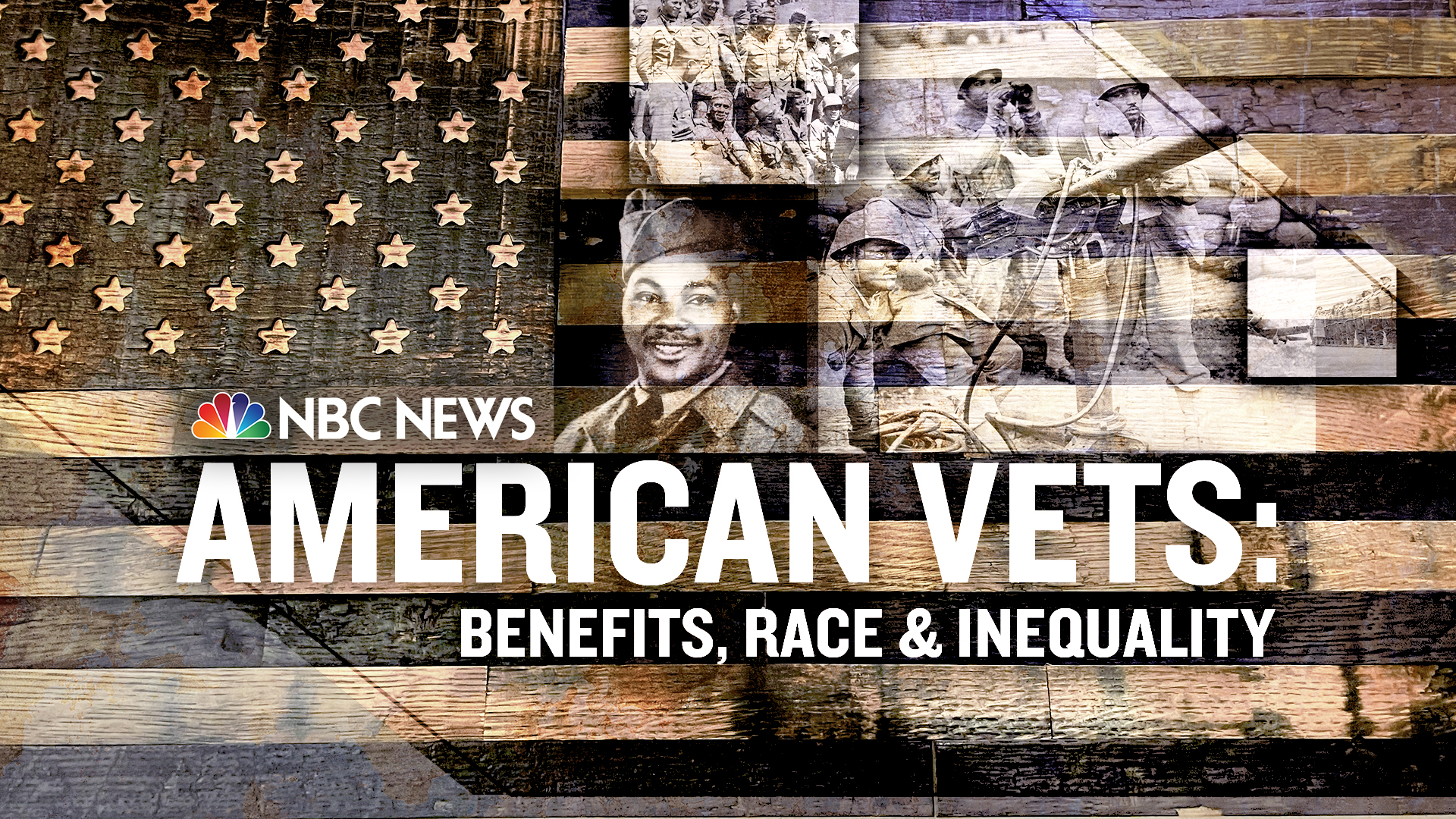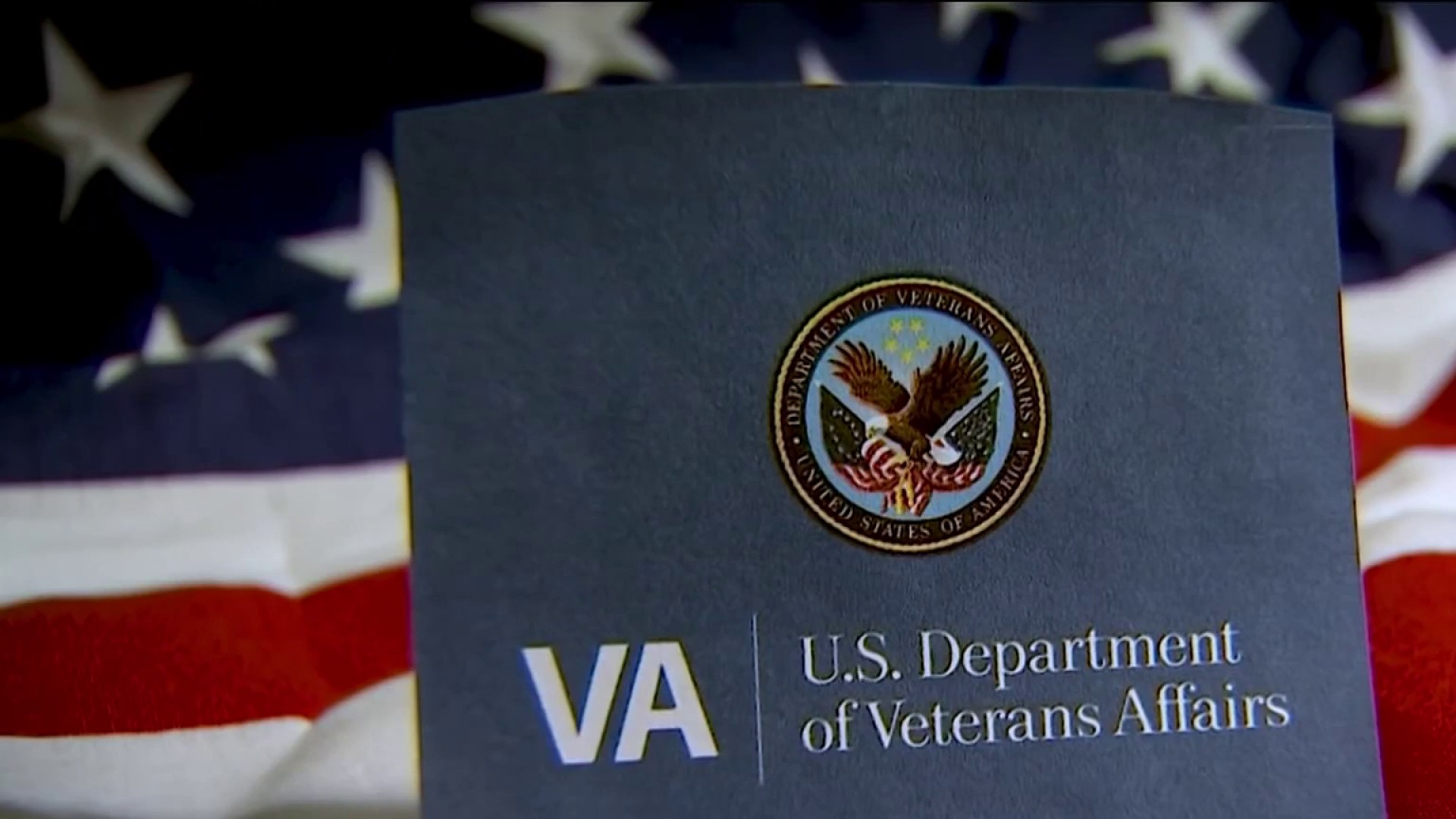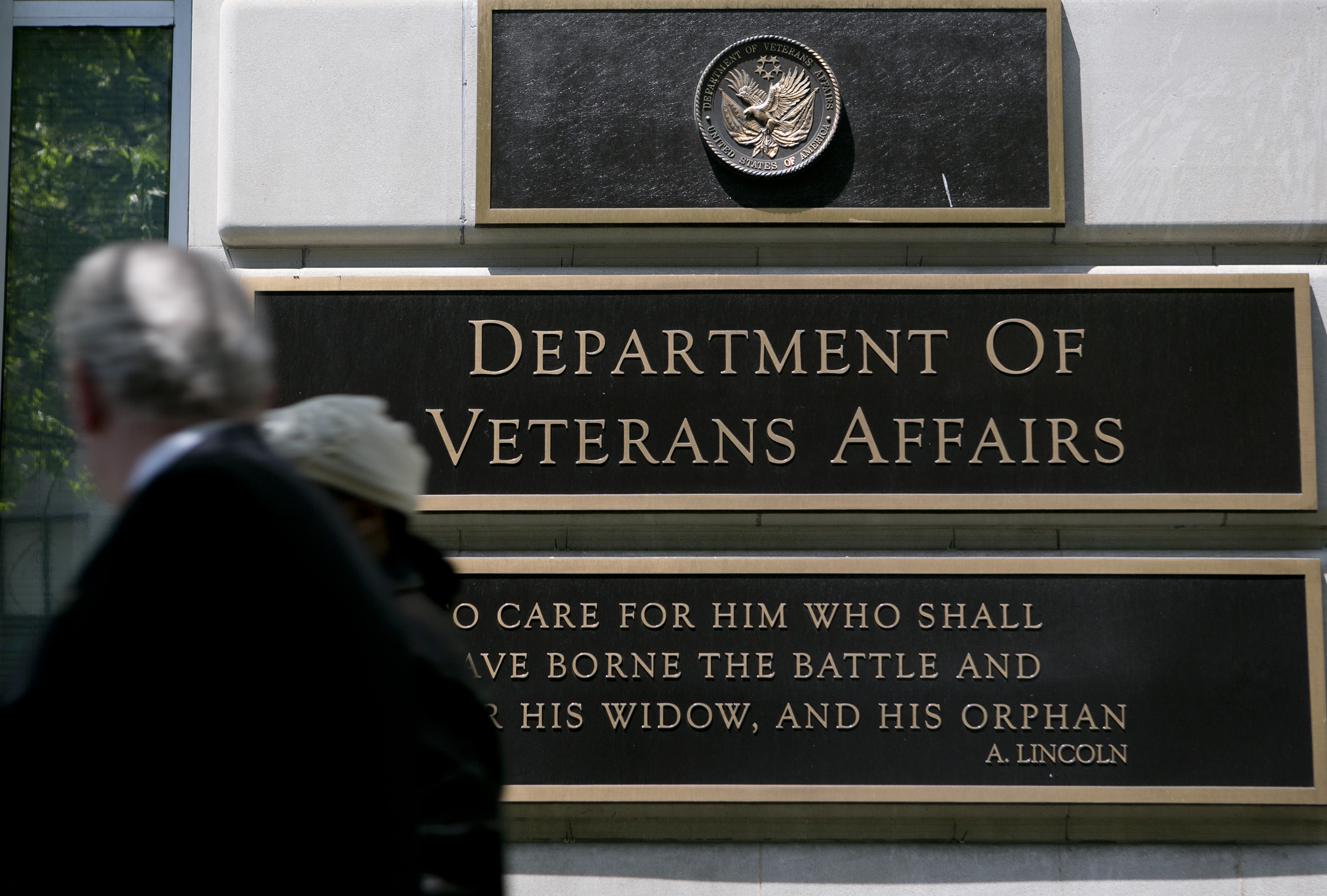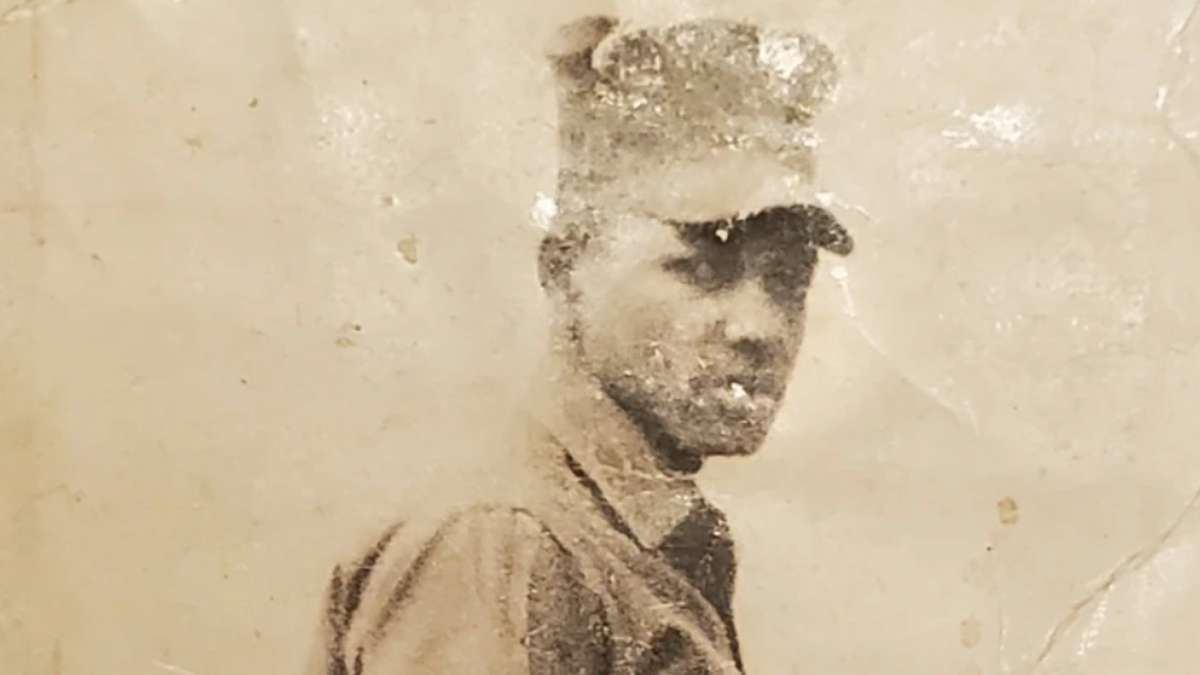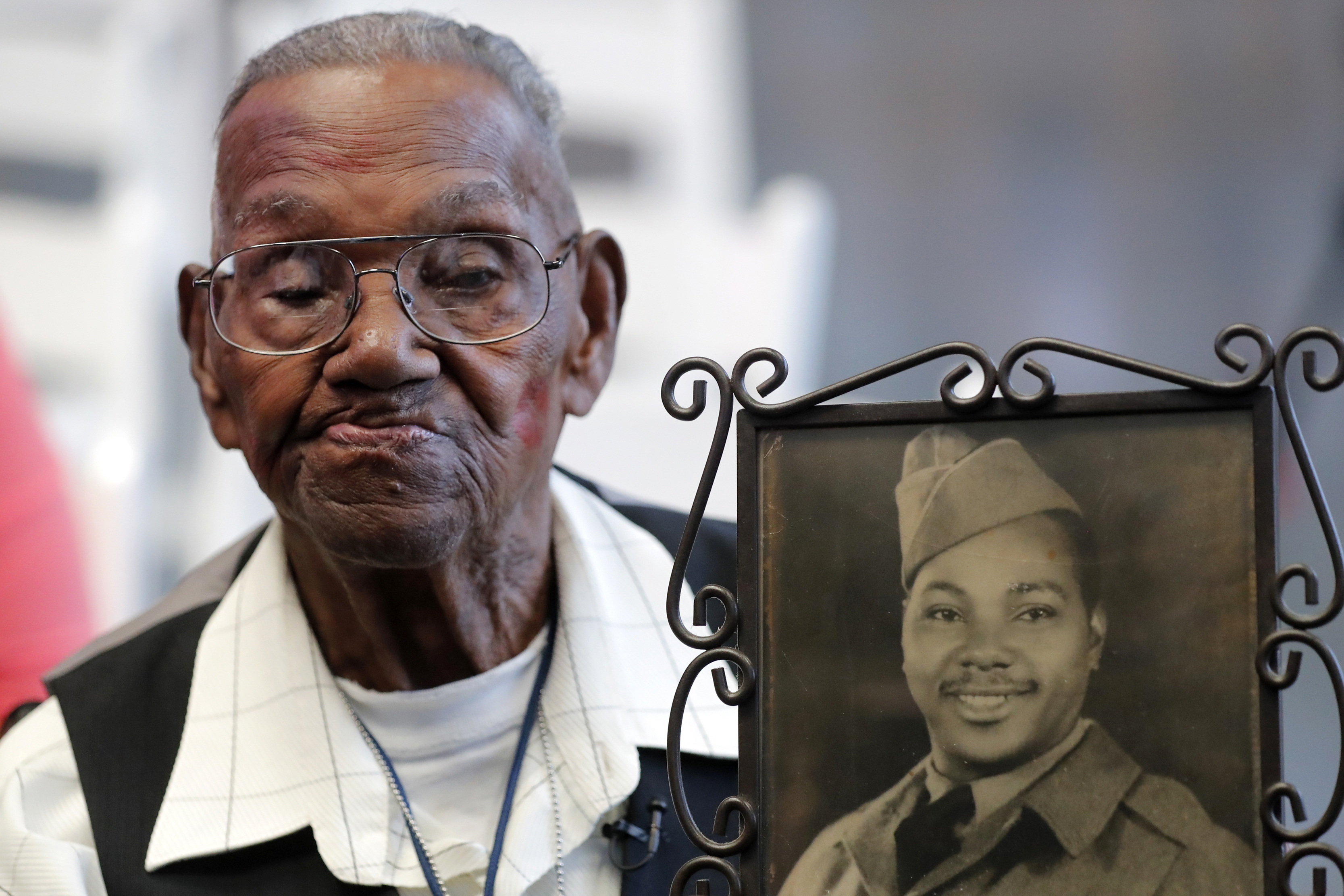New data from the Veterans Benefits Administration shows a wide disparity for former military members seeking disability benefits, with the Department of Veterans Affairs denying the claims of Black veterans at a higher rate than those of white veterans for every year since 2002.
NBC obtained 17.6 million records through a Freedom of Information Act request, detailing every VA disability claim going back to 2002, including the race, gender and location of each claimant.
The widest disparity was for veterans who sought service disability payments for their post-traumatic stress disorder diagnosis. The Veterans Benefits Administration denied 40% of Black claims, compared to just 30.7% for white claimants.
The disparity mirrors data in a 2017 internal Veterans Affairs report that showed Black veterans seeking disability benefits for PTSD were denied 57% of the time, compared to 43% for white veterans. That report — which analyzed claims data from fiscal year 2011 through 2016 — was released earlier this year as part of an open records lawsuit filed by an advocacy group for Black veterans.
Get a weekly recap of the latest San Francisco Bay Area housing news. Sign up for NBC Bay Area’s Housing Deconstructed newsletter.
“As the VA starts to dig into it and the government starts to dig into it, we have been identifying quite a few discrepancies that are leading to a higher rate of Black veterans not being able to receive their benefits versus that of our white counterparts,” said Deanna Love, a retired U.S. Army major and the director of the Cook County, Illinois, Department of Veterans Affairs.
For the most recent data, nearly every state showed a pattern of higher denials for African Americans, with the exception of Rhode Island, Puerto Rico, and U.S. overseas possessions in the Pacific.
Eliminating racial disparities
For all conditions, not just PTSD, for claims filed between 2002 and September 2023, 23.9% of Black veterans were denied, whereas 19.1% of white veterans were denied. In just the past two years, white veterans had 13.9% of their claims denied. Black veterans had 18.1%of their claims denied.
A lawsuit over the racial discrepancies that was brought by Conley Monk Jr. of Hamden, Connecticut, is pending in U.S. District Court in Bridgeport. The Department of Veterans Affairs, Monk, and his legal team from Yale University were in court at the start of the month as the government tried to have the lawsuit dismissed.
“I couldn’t get any educational benefits, I couldn’t get any housing benefits, and what hurt me the most was my family,” Monk told NBC. “My kids weren’t able to get educational benefits they were entitled to.”
US & world news
Earlier this year, the VA announced a new team responsible for investigating and eliminating racial disparities inside the agency's veterans benefits program.
The VBA also consistently denied PTSD claims made by women at much higher rates than men in the early 2000s, but levels became roughly even by 2015.
In 2002, the VBA denied women with a PTSD diagnosis 61.3% of the time, whereas they denied men 46.7% of the time. By 2023, women were denied 17.1% of the time. Men were denied 21.8% of the time.
VBA disability claims jumped exponentially in 2003 with the start of the Iraq War, and climbed almost every year since. With expanded eligibility under the PACT Act, a proliferation of online services to help with disability, and the pandemic, the VBA has struggled in recent years to handle the burgeoning number of new claims.
The PACT Act expands VA health care and benefits to include illnesses related to exposure to burn pits, Agent Orange and other toxic substances.
Training more officers to help
Veterans Service Organizations represent the largest percentage of accredited agents who help veterans apply for benefits. In 2020, the number of cases they handled dropped.
In that same time frame, state offices and self-filed claims jumped. In 2021, the number of claims filed by veterans with the help of unaccredited services or by themselves rose nearly 50%, from 210,115 to 301,498. That level was surpassed the next year with 327,440. Altogether, over a million veterans filed claims in the past year alone.
In Chicago, Emanuel Johnson, a former chairman of the city's Advisory Council on Veterans Affairs, is part of a drive to encourage more African Americans and more women to become veterans service officers. Some veterans may feel more comfortable working with someone who looks like them, especially if their experience in the service was not entirely positive, he said. If they did not feel that they got the support they needed while they were in the service, they might not think they will get it afterward, said Johnson, who served in the U.S. Navy for six and a half years as an information systems technician aboard the U.S.S. Vella Gulf.
“Whether they feel like they were completely supported by the government or getting what they from the VA, there is a lot of pride in their service in the black community that we still see even if it was a difficult situation they really do take pride in the time they spent in the military,” he said.
Veterans service officers are trained and accredited by the VA and other organizations to provide help to veterans and their families without charge They can assist in filing benefit claims, represent veterans at VA hearings and answer questions about what benefits are available.
Also in the news
Illinois has one of the highest discrepancy rates in the country. In the past two years 34.6 percent of black vets had their PTSD claims denied compared to 19.3 percent of whites.
Cook County, which includes Chicago, began a veterans service officers corps this year with one full-time, accredited officer. It expects to have six by the end of the year and will work with organizations it partners with such as Leave No Veteran Behind to add others, Love said. It is funding the program through the Covid-19 stimulus plan, the American Rescue Plan, allocating about $400,000 over the next three years.
Cook County has a veteran population of more than 148,000, with 35% of them having served in Vietnam, Love said. Chicago has 66,000 veterans. The Vietnam veterans had a higher rate of disapproval of their VA benefits, she said.
The need for more veterans service officers became apparent after Love became head of the department in 2021.
“We need more boots on ground, hashtag our VSOs, those veterans service officers, to be able to assist the veterans that are here so they're not in the battle by themselves,” Love said.

